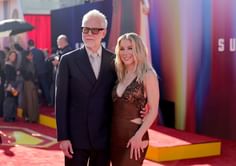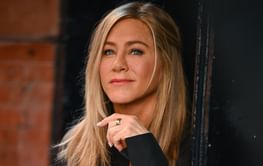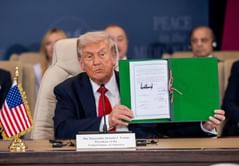
The trial of John C. Depp, II v. Amber Laura Heard, can be streamed on the website of Court TV and the Law and Crime Network’s app.
The high-profile case was heavily publicized because it involved Johnny Depp and Amber Heard, two incredibly well-known actors who were once married. The case was live streamed, and it quickly went viral on social media.
Court TV and Law and Crime Network were permitted to transmit live from the courtroom, and they even made the specifics of the trial accessible on their respective online platforms.
What happened in the Depp v. Heard trial?
The case of John C. Depp, II v. Amber Laura Heard, involving claims of defamation between American actors Johnny Depp and Amber Heard, was heard in Fairfax County, Virginia, from April 11 to June 1, 2022. Heard was the defendant in a defamation lawsuit brought by Depp, who sought $50 million in damages. In May 2016, when their divorce was still pending, Heard accused Depp of physically abusing her. Depp denied the allegations.
In a separate libel case in England, where Depp sued News Group Newspapers Ltd over an article that appeared in The Sun, the presiding judge found in favor of News Group Newspapers Ltd, noting that "the great majority of the alleged assaults on Ms. Heard by Mr. Depp have been proved to the civil standard." According to several legal professionals, Depp's chances of succeeding in the US trial were lower than those in the UK trial.
Depp's allegations in the Virginia trial were in reference to Heard's op-ed that appeared in The Washington Post in December 2018. Depp claimed that Heard's claims that she had spoken out against "sexual violence" and that "two years ago, [she] became a public figure representing domestic abuse" had caused harm to his reputation and career.

As part of Heard's defense, she claimed that Adam Waldman, Depp's former attorney, had slandered her in remarks that were printed in the Daily Mail in 2020. Throughout the trial, Depp's defense team worked to refute Heard's claims of abuse and show that she had initiated the violence against Depp rather than been the victim. The op-ed was defended by Heard's legal team on the grounds that it was factual and First Amendment-protected.
The trial was live streamed and received a sizable social media response, the majority of which was favorable to Depp and unfavorable to Heard. The case's news coverage increased social media engagement and reignited discussions about domestic violence, the #MeToo movement, and women's rights.
The jury determined that Heard's op-ed references to "domestic abuse" and "sexual violence" were false and defamed Depp with actual malice. As a result, the jury awarded Depp $10 million in compensatory damages from Heard and $5 million in punitive damages. However, the court reduced the punitive damages to $350,000 due to a cap imposed by Virginia state law. Additionally, they determined that Waldman had slandered Heard by asserting falsely that she and her friends "roughed up" Depp's penthouse as part of a "hoax."
Heard received $2 million in compensatory damages from Depp, but no punitive damages were given. Separately, the jury determined that Waldman's other claims regarding Heard's "abuse hoax" and "sexual violence hoax" against Depp had not been proven to be defamatory.
What is the background of Depp v. Heard trial?
While filming "The Rum Diary" in 2009, actors Johnny Depp and Amber Heard became friends. Heard claims that their relationship started "around the end of 2011 or early 2012." They got engaged in January 2014 and were married in February 2015 on Depp's exclusive Bahamas island, Little Hall's Pond Cay.
On May 23, 2016, Heard obtained a temporary restraining order against Depp and filed for divorce. She was allegedly "trying to secure a premature financial resolution by alleging abuse," Depp responded. Heard claimed that Depp had been "verbally and physically abusive" throughout their relationship, typically while under the influence of alcohol or drugs, in a deposition testimony given during their divorce litigation.

After a settlement was reached in August 2016, the divorce was finalized in January 2017. In response to Heard's withdrawal of the restraining order, Depp and she jointly issued a statement claiming their relationship was "intensely passionate and periodically volatile, but always bound by love." "Neither party has made false accusations for financial gain." "There was never any intent of physical or emotional harm."
Heard agreed to donate the $7 million divorce settlement that Depp gave her to the Children's Hospital of Los Angeles and the American Civil Liberties Union. A non-disclosure agreement (NDA) preventing either party from disclosing their relationship to the public was part of the settlement.
What was the final settlement of Depp v. Heard trial?
Heard appealed the decision against her in October 2022, and Depp appealed the decision against him in November 2022. In December 2022, Heard reached a settlement with Depp, saying that even if her appeal were successful, she "simply cannot go through" a retrial because she "lost faith in the American legal system."
She insisted that she had not consented to any "restrictions or gags" moving forward and that the settlement was "not an act of concession." The $1 million settlement payment will go to Depp, who "is pledging and will donate to charities," according to Depp's attorneys, and the jury's unanimous decision and resulting judgment in favor of Depp against Heard "remain fully in place."









